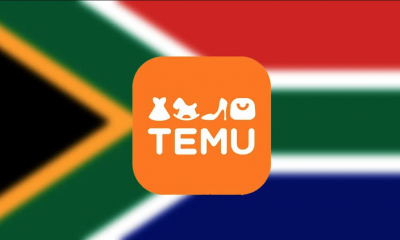Business
Big Changes Ahead for Shein and Temu in South Africa as SARS Withdraws Import Concessions

South Africa’s booming e-commerce sector is set for a shake-up as the South African Revenue Service (SARS) moves to withdraw key import concessions. The decision will directly impact global retail giants like Shein and Temu, which have benefited from simplified customs processes.
SARS Cracks Down on Outdated Concessions
SARS has issued a notice stating its intention to eliminate all special allowances, agreements, or concessions that no longer align with current laws, policies, or technological advancements. According to SARS commissioner Edward Kieswetter, some of these concessions date back two decades and have outlived their original purpose.
For Shein and Temu, this means that the simplified import process with a flat 20% duty rate—implemented in 2007—will be scrapped. This system allowed shipments under R500 to clear customs more easily, reducing costs for these retailers and their South African customers.
Local retailers have long criticized these concessions, arguing they give foreign companies an unfair pricing advantage. Many also claim importers exploited loopholes—like splitting packages—to keep costs down artificially.
How Will This Impact Shein, Temu, and Other Importers?
Without these concessions, Shein and Temu will face increased customs duties and VAT, leading to:
-
Higher prices for consumers, as companies adjust for increased import costs.
-
Potential delays in shipments, as goods will now have to comply with standard customs clearance procedures.
-
A more level playing field for local businesses, particularly in the textile and fashion industries, which have struggled to compete with low-cost imports.
In 2024, SARS introduced temporary VAT changes, requiring VAT to be calculated in addition to the 20% flat duty. This move already signaled a shift toward stricter regulations, and the latest withdrawal of concessions cements that direction.
Wider Economic and Industry Impacts
While Shein and Temu will feel the most immediate impact, SARS’s decision could have far-reaching consequences for multiple industries, including:
-
Wine exports: Cape winemakers will no longer benefit from a concession allowing them to clear goods 14 days after leaving port.
-
E-commerce sector: The cost of doing business in South Africa will increase for other international retailers.
-
Trade relations: South Africa could face retaliatory tariffs from global trading partners, similar to recent moves by the United States.
What Happens Next?
SARS has invited stakeholders to submit feedback by April 23, 2025. Those who wish to retain specific concessions must provide clear justifications or propose legislative changes.
As the debate unfolds, businesses importing goods into South Africa—including Shein and Temu—will need to reevaluate their strategies to remain competitive in a shifting regulatory environment.
Final Thoughts
The end of these concessions marks a major shift for South Africa’s retail landscape. While local businesses may benefit, consumers could see higher prices and longer wait times for their favorite international brands.
Will SARS’s decision strengthen local industries, or will it drive up costs for consumers and spark trade disputes?
{Source BusinessTech}
Follow Joburg ETC on Facebook, Twitter , TikTok and Instagram
For more News in Johannesburg, visit joburgetc.com



























